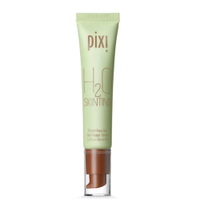The 9 best lightweight foundations of 2025 for a fresh and radiant complexion
Our beauty team's detailed guide to the best lightweight foundations for a natural and healthy-looking base
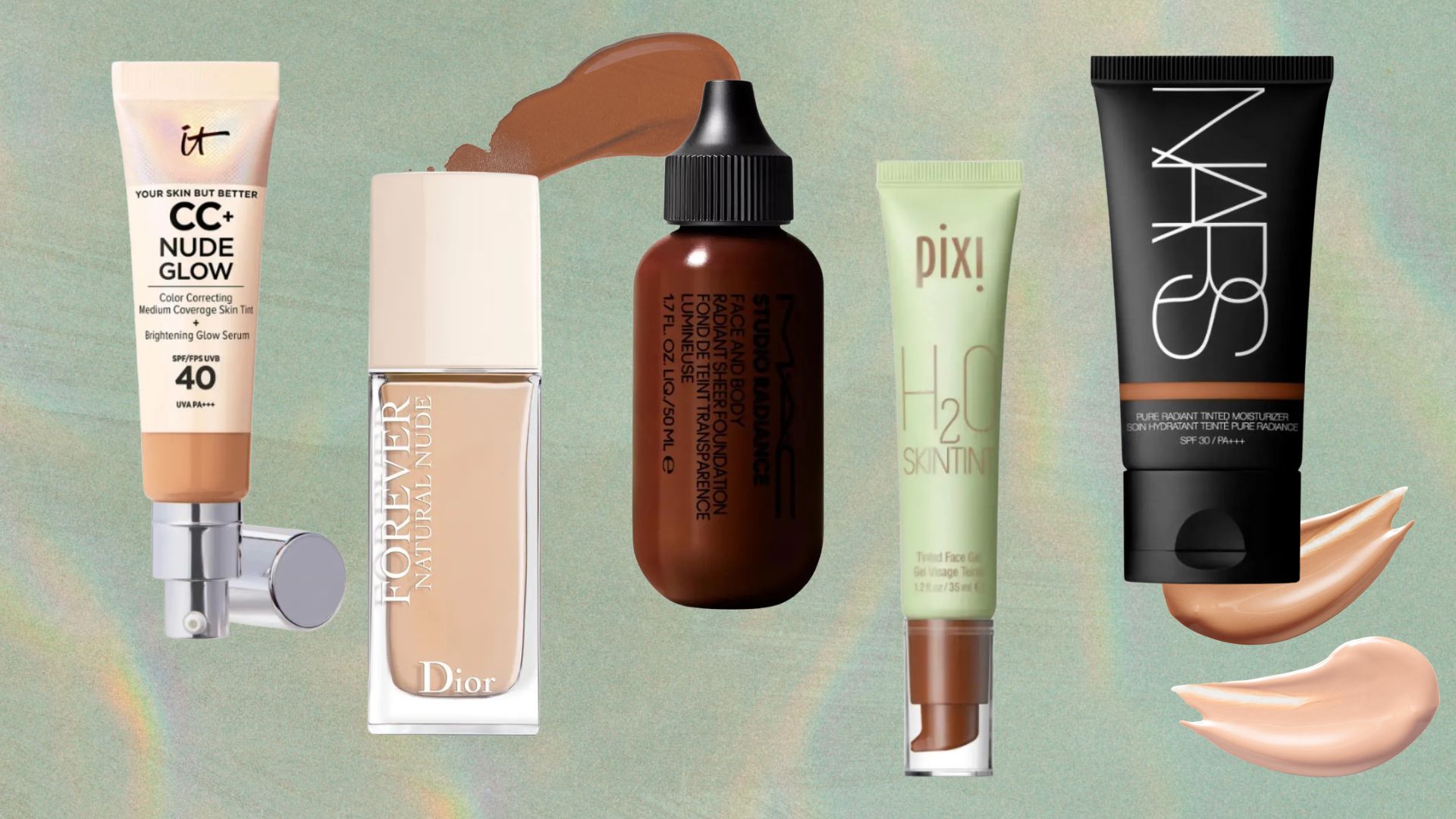

Amelia Yeomans
The best lightweight foundations should look like your skin on a really good day, with a comfortable and barely-detectable feel. Ideally, they'll also pack in some skincare benefits, such as hydrating ingredients.
With so many options available, choosing the best foundation with a weightless formula may not seem easy, especially when you take factors like skin type into account. But the great thing about lightweight foundations is that they tend to suit most people’s needs. For those with dry skin, the barely-there texture doesn’t cling to rough patches or settle in lines, but they also won't congest oily skin.
To save you the job of scouring shelves or scrolling shopping sites, we've tested every lightweight foundation we could get our hands on to bring you a reliable, beauty editor-approved guide to the best on the market. Here are our detailed reviews of those that came out on top...
Lightweight foundation deals
Save almost £10 on Pixi's H20 SkinTint, a tinted water-based formula designed to even out the skin tone and reveal a healthy glow. Suitable for a variety of skin types, this hydrating tint lasts throughout and is water-resistant.
The best lightweight foundations, reviewed by our beauty team
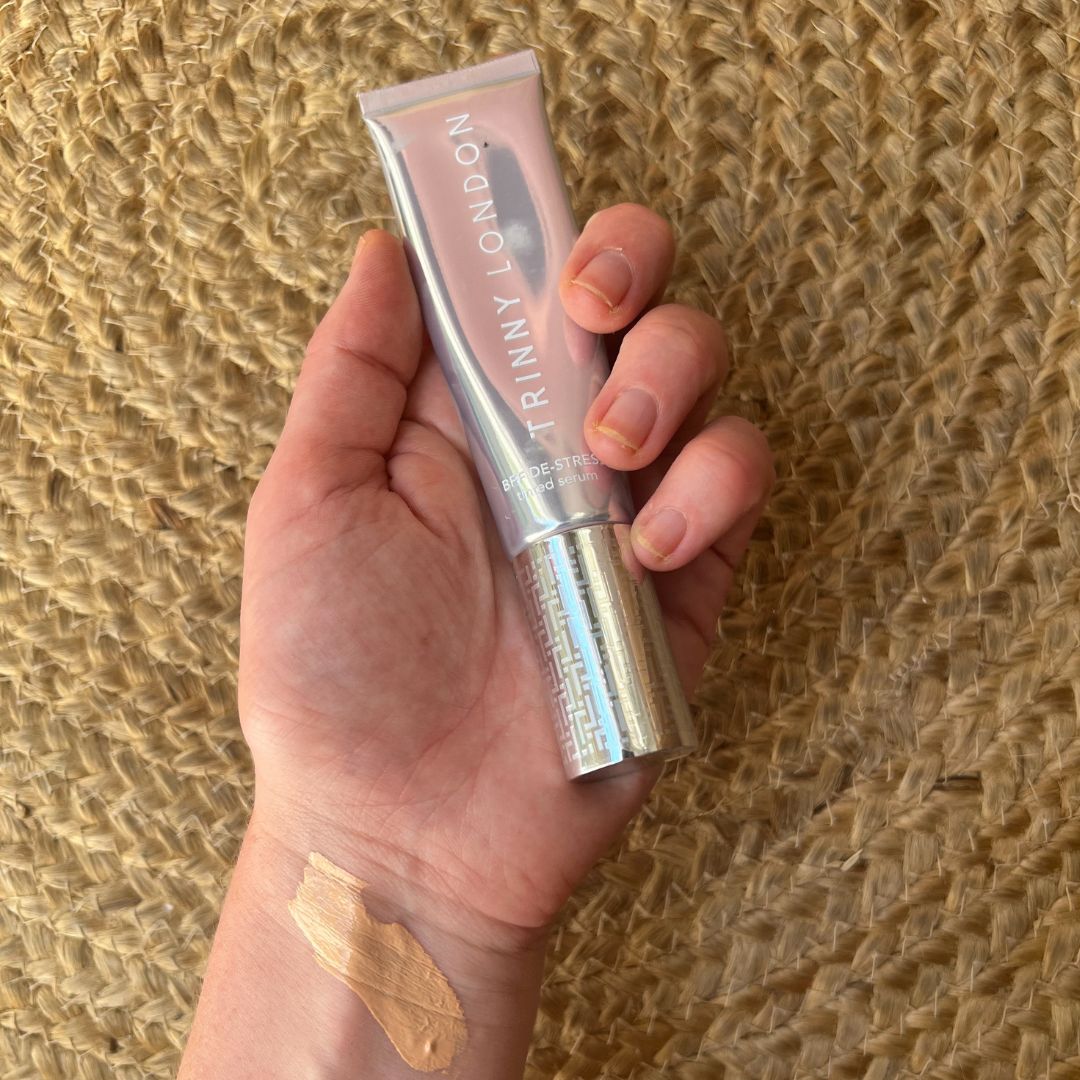
RRP: £39 | Shades: 12 | SPF: No | Finish: Fresh, glowing
Created to make our complexions look happy, content and wide awake (even when the reality is different), Trinny London's BFF De-Stress Tinted Serum is powered by hyaluronic acid, a hero hydrator that you’re probably already familiar with, and NP-TriOX complex, a plant-based ingredient proven to minimise the impact of stress on our skin.
The formula looks fairly opaque on the brush, but can be sheered out by using less or built up to achieve medium coverage. Regardless of how little or how much you apply, our tester found that it doesn’t tend to settle into fine lines.
"This is the one base that my mum and I are both obsessed with," says woman&home beauty editor Jess Beech. "I'm noticing fine lines cropping up around my eyes and on my forehead, so I'm a fan of anything that makes them less noticeable. Since testing this, Mum has completely ditched all her other foundations, and I think her skin has never looked dewier."
Pros: Lightweight coverage; skincare benefits
Cons: If you have oily skin, this might be too dewy
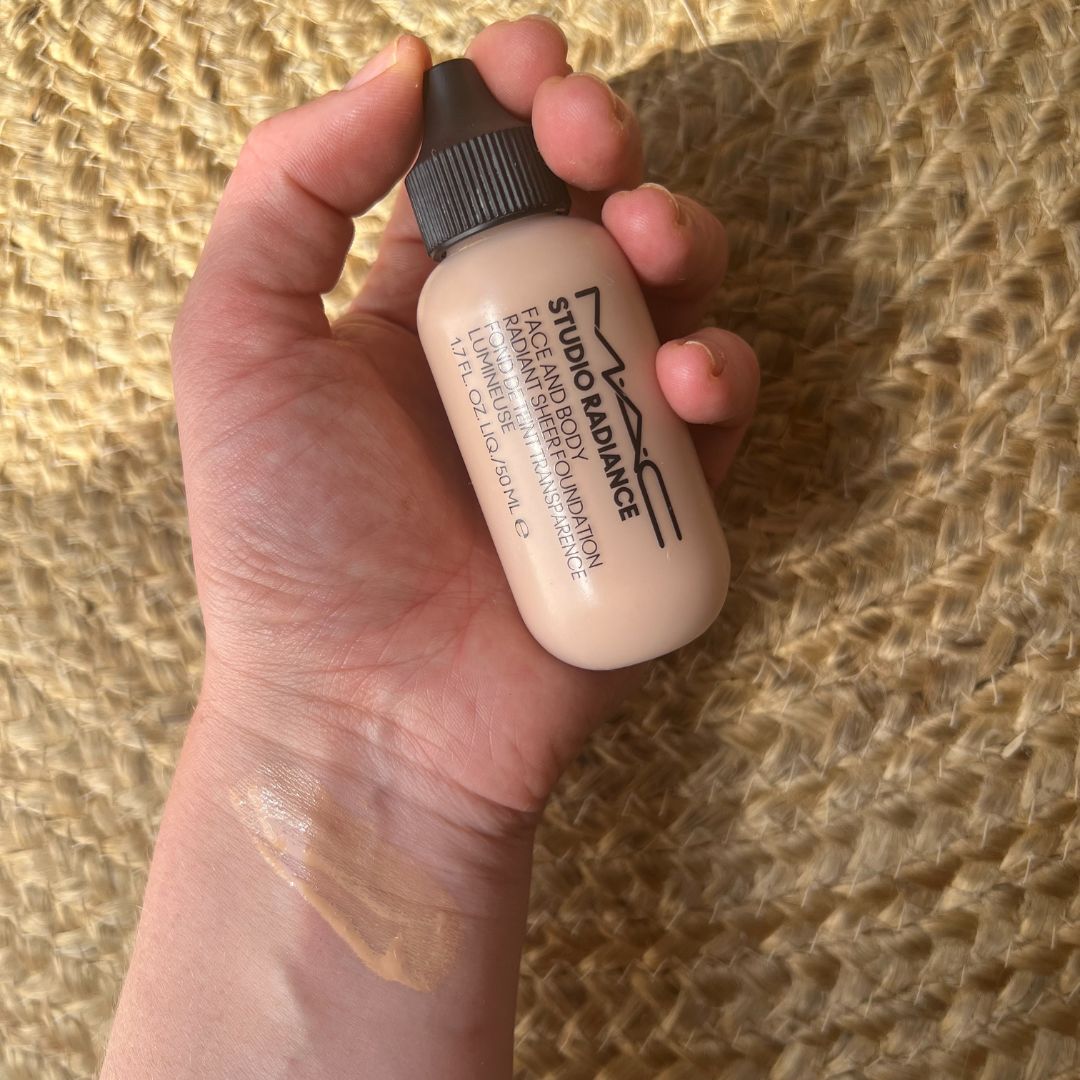
RRP: £35 | Shades: 30 | SPF: No | Finish: Radiant
The main reason MAC Studio Face and Body Radiant Sheer Foundation is in most makeup artists' kits is because this sheer, buildable, long-wearing yet light and fresh-looking base is unbelievably versatile.
Our tester, Fiona McKim, says, "I found that it worked just as beautifully rubbed hastily into a bare face as it did when buffed into my skin in careful layers to create a more polished face of makeup. It's just as at home on limbs as on cheeks, never transfers and resists a rain shower with ease, making it one of the best waterproof foundations."
"The light and squeezy bottle is as convenient as they come, with a slim dropper-like top that makes light work of applying the formula, which is water-light and very spreadable. The shade range is pretty extensive, too. Overall, I think there are very few people who won't love this foundation, thanks to its versatility."
Pros: Hydrating wash of coverage, very easy to blend
Cons: It is quite sheer, so won't cover much on its own
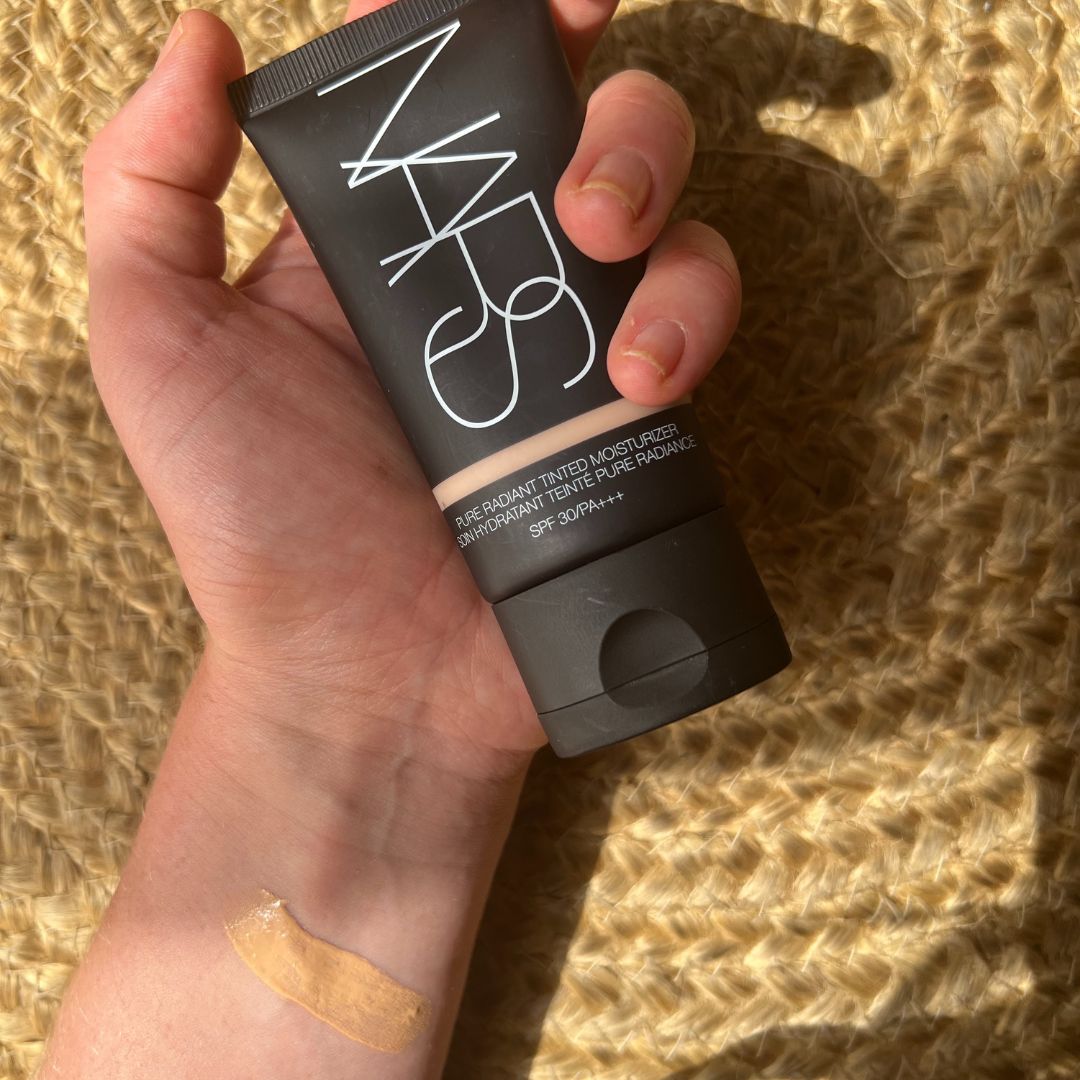
RRP: £39 | Shades: 16 | SPF: Yes | Finish: Natural
Weighing up foundation vs tinted moisturiser? When our tester, Fiona McKim, tried this one, she found it easily comparable to some of the best lightweight foundations out there. "I love that the ingredients focus on skin benefits but still deliver as makeup, too. The pigment is buildable and has a water-silicone base that ensures it applies smoothly."
"Once it dries it sets in place for a lasting, lightly radiant finish, "Fiona continues. "I got the best part of a day's wear out of this foundation. It doesn’t settle into lines or melt off my oily T-zone. The shade range has been extended to 16, but it still isn't enormous at the deeper end."
Packaging-wise, the slimline, light tube is portable and perfect for travel, as are the wanderlust-inspired shade names. A justified classic, there is very little not to love here – Jess Beech's full NARS Tinted Moisturiser review explains more about what makes it so great.
Pros: Easy to apply; radiant finish
Cons: Shade range is somewhat limited
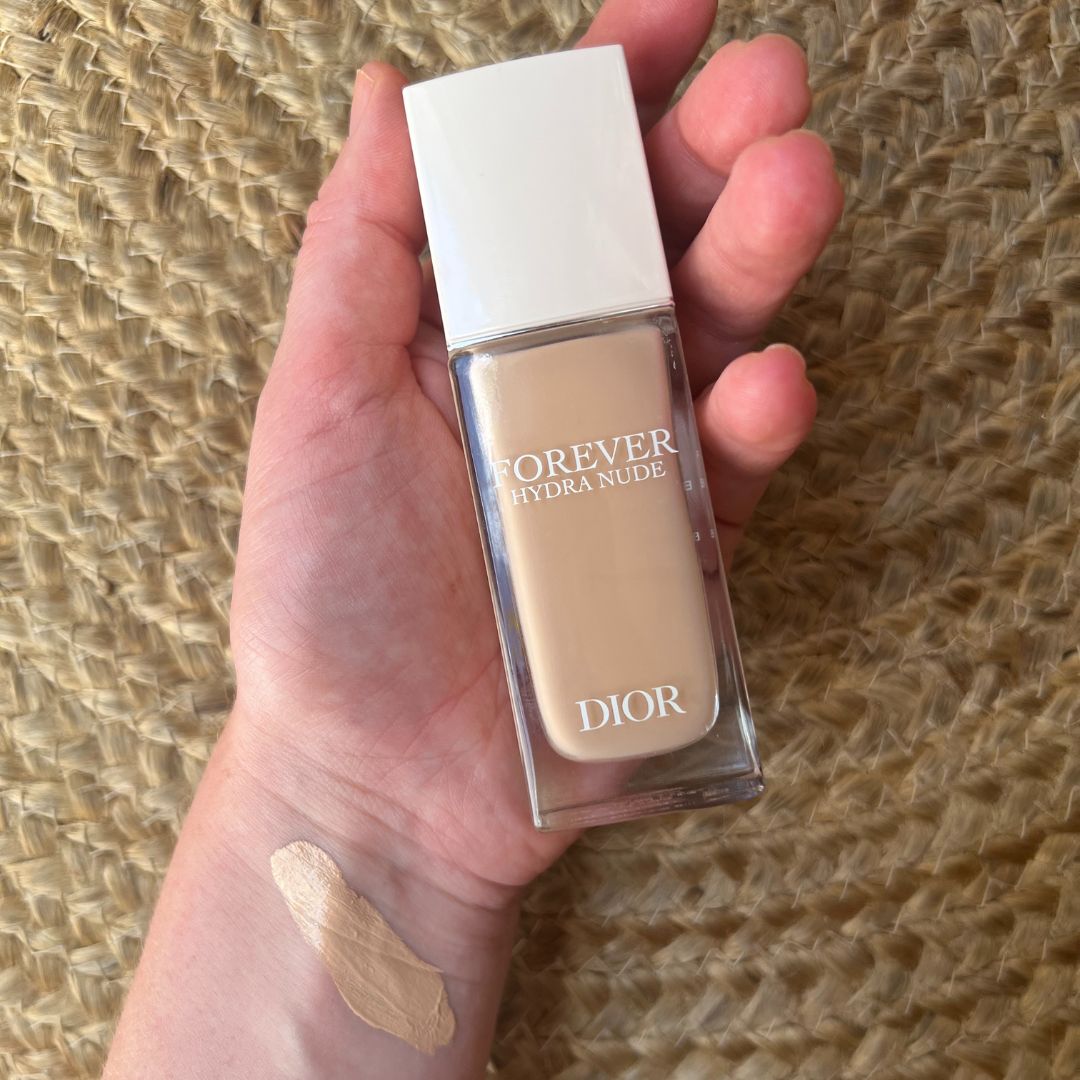
RRP: £50 | Shades: 18 | SPF: No | Finish: Dewy
This formula is made with 96% natural origin ingredients, hyluronic acid and yields a fresh, dewy finish. It's a little thicker than some of the other picks on this list, but it blends nicely with a firm brush and quickly sets with no streaks, no dragging and definitely no tell-tale tidemarks.
"I thought this foundation made our skin look great, while still feeling like skin," says our tester, Fiona McKim. "Naturally, if a matte, high pigment base is your go-to then this probably won't suit you (but this Dior Forever Matte foundation review will be worth a read). This is long-lasting and didn't transfer onto a white collar while testing, which is always a plus."
"A final note is that it's fragranced, which may not suit everyone, especially those with sensitive or reactive skin – but this being a Dior foundation, it's a quietly luxurious scent that you'll probably love."
Pros: Long-lasting, juicy finish
Cons: Rather expensive
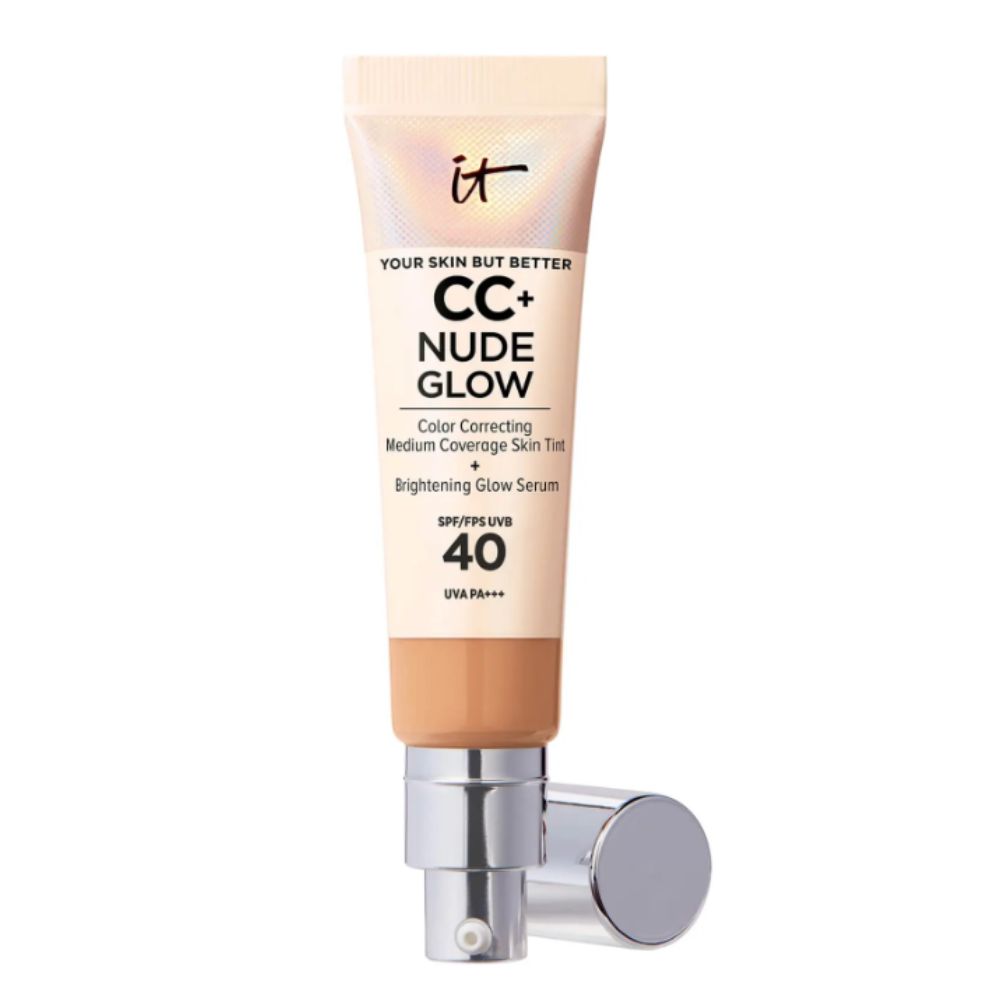
RRP: £36.50 | Shades: 22 | SPF: Yes | Finish: Dewy and glowy
Containing niacinamide, hyaluronic acid and green tea extract, as well as SPF40 for protection against UVB rays, this foundation is lighter and thinner than the original CC – meaning less coverage on things like hyperpigmentation and breakouts.
This doesn't have quite enough coverage to cover a spot, for example, but our tester, Jess Beech, found it worked well at neutralising unwanted tones, such as purple rings around your eyes and redness. The brightening benefits are impressive too, with plenty of glow.
"I tested the shade light, which initially looked way too dark on the back of my hand", says tester Jess. "Somehow, though, when I did apply it to my face, it blended seamlessly without making me look even a little bit tangoed." There are 22 shades to choose from, but only seven of those cater to deeper skin tones, which could do with being bumped up.
Pros: Added benefit of SPF40, lightweight packaging
Cons: Shade range is limited, particularly for darker skin tones
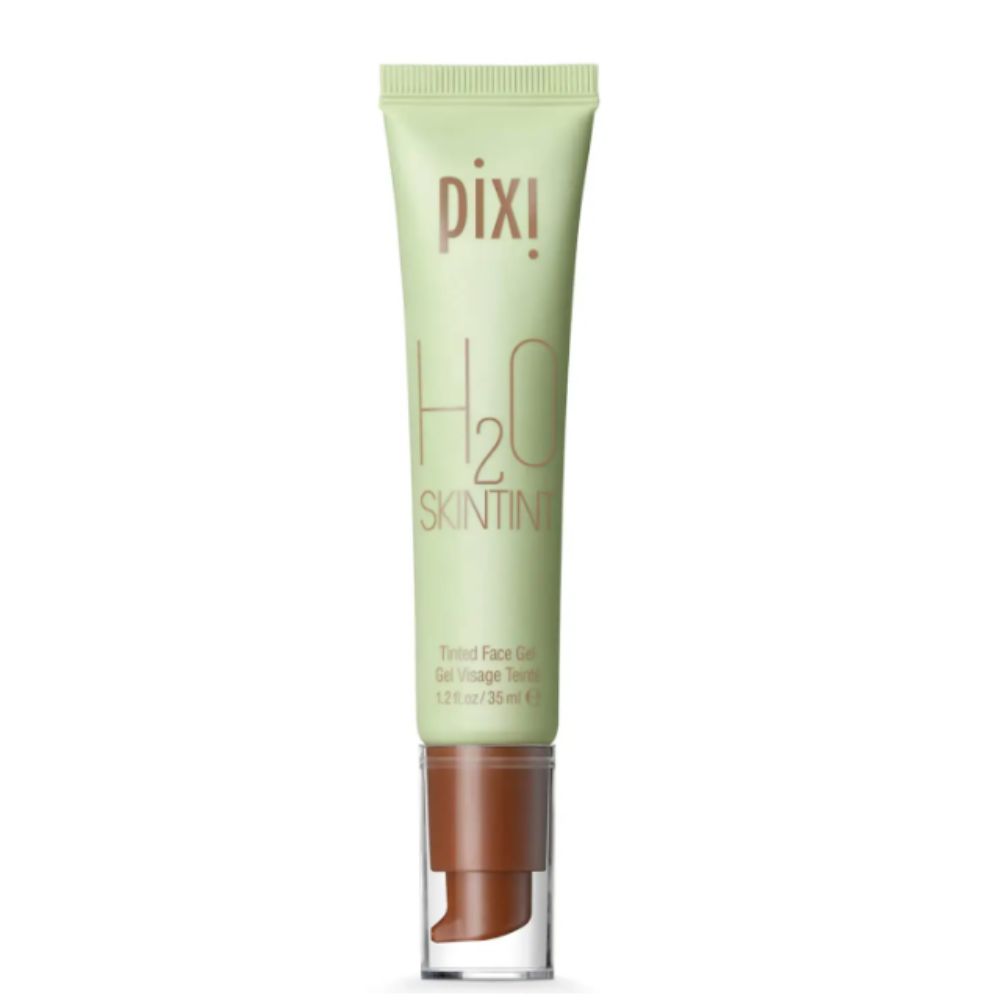
RRP: £24 | Shades: 18 | SPF: No | Finish: Natural
Pixi H2O Skin Tint is a perfect pick for those who want their base to feel truly weightless. It glides on and blends out with minimal effort. You can use your hands to apply it, and you hardly need any product to cover your whole face.
For those with dry skin, this won't cling to any rough patches or blemishes and will instead hydrate and provide a natural glow. Despite its thin texture, our tester Amelia Yeomans found it yields enough coverage to conceal light redness or small spots without the need for a heavy concealer.
"It didn't move around throughout the day, and it layered beautifully with my best bronzers and blush. I've used the Pixi SkinTint for over a year, and it's my go-to for a featherlight base that looks just as good at the end of the day as it does when first applied."
Pros: Great for dry skin
Cons: Thinner consistency won't appeal to all
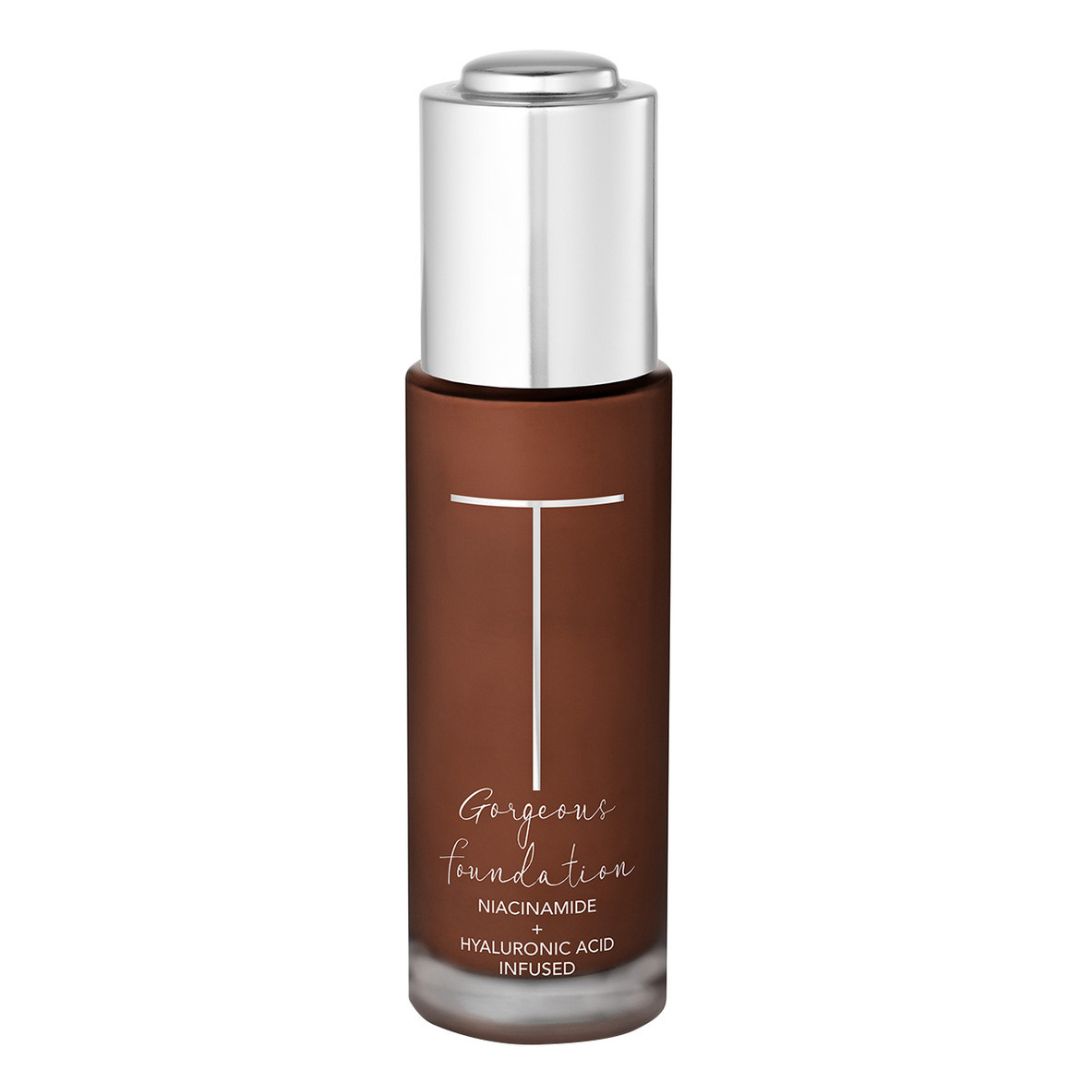
RRP: £58 | Shades: 17 | SPF: No | Finish: Satin
If you haven't heard the name Trish McEvoy, please allow us to introduce you; this brand is beloved in the beauty industry (including by woman&home's very own Beauty Channel Editor, Fiona Mckim) for its tightly curated range of brilliant, hardworking makeup.
This foundation is a worthy inclusion in this guide as it contains plumping hyaluronic acid, offers buildable coverage and has a soft matte finish that works well for daytime but is polished enough for evening.
"I didn't expect to love this quite as much as I did," admits Fiona. "The bottle is quite unassuming, but the makeup artist-created formula is beautiful. Creamy yet lightweight, it blends exceptionally well without looking streaky; I apply mine with a damp beauty sponge for a radiant, light finish. It doesn't sink into the lines around my eyes and lasts nicely from 7 am application until 9 pm cleanse on working days."
Pros: Versatile, works for all occasions
Cons: Rather expensive
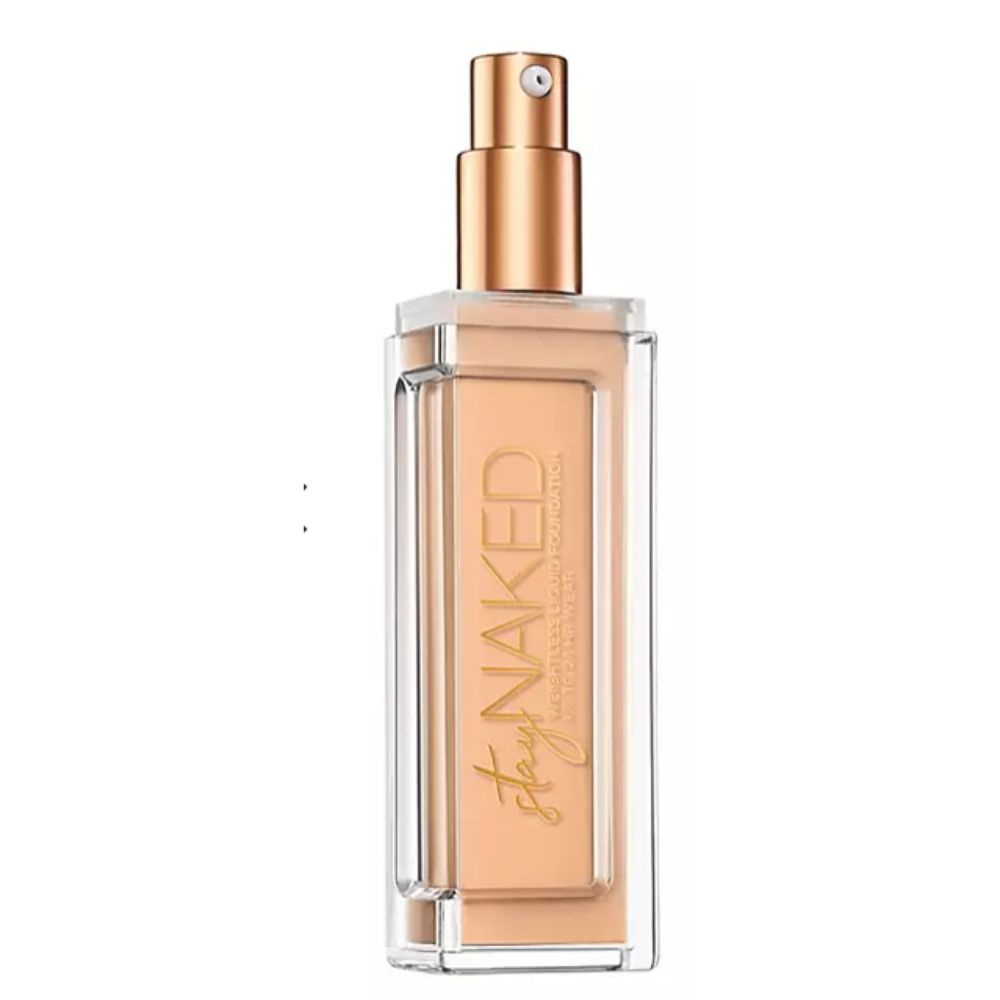
RRP: £36 | Shades: 50 | SPF: No | Finish: Matte
You don't need to have flawless skin to wear a lightweight foundation – as long as you opt for something that evens out the skin tone. Not only is this foundation available in a whopping 50 shades, but it also comes in nine intensities to cater to a broad range of skin tones.
While testing this foundation, Amelia Yeomans found that it did a great job of concealing yet was also weightless, matte and pore-minimising. "The Moroccan Lava Clay and glycerin-infused formula gave my skin the gorgeous, natural glow I've always wanted from a foundation," says Amelia.
"Overall, I loved the finish, coverage and moisture-boosting properties of this formula. While it does a great job of evening out the skin tone, I did feel the need for one or two touch-ups throughout the day."
Pros: Extensive shade range
Cons: Not the longest-lasting option here
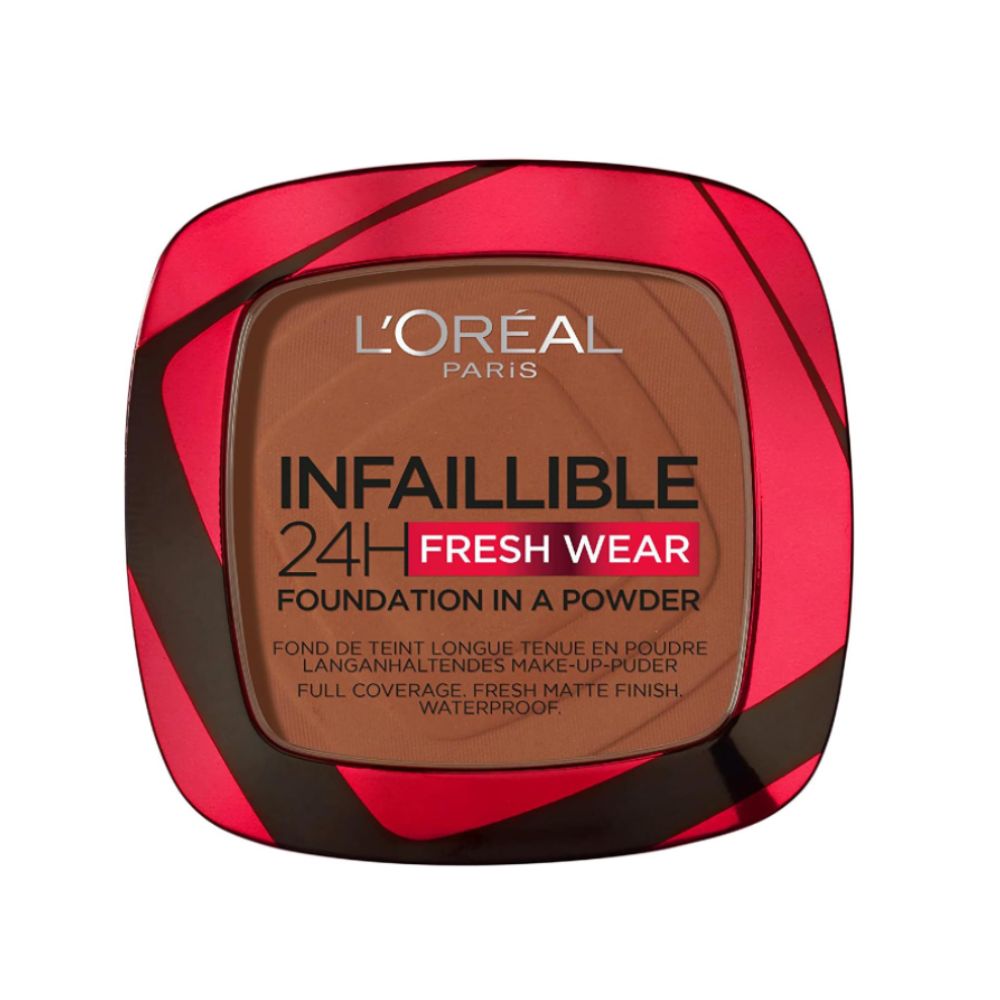
RRP: £13.99 | Shades: 12 | SPF: No | Finish: Soft matte
Even the best powder foundation doesn't tend to make the greatest choice for anyone with dry skin. But unlike your classic pancake-y powder, this finely milled, pigment-packed option is designed to be a one-stop shop base.
Amelia Yeomans tested this one and found the texture very easy to blend. "The inclusion of skincare ingredients like antioxidant-rich algae aligns with what I expect from liquid foundation and, for oily and combination types, the finish is impressively skin-like, long-lasting and just the right side of matte."
"As a compact, it's both portable and handbag-friendly, so great for those who like to top up their makeup on the go. As ever with powders, the included sponge isn't brilliant – a firm, kabuki-style brush is better for buffing it in. There's a lot of room for improvement in the shade range, too; I'd like to see more options for deeper skin tones."
Pros: Easy-to-apply; portable
Cons: Shade range needs improving
🚨 Also consider
We tested dozens of lightweight foundations for this guide. Although the above are our nine best of the best formulations, there are a few more that we just had to mention...
- Jones Road Just Enough Tinted Moisturiser: From makeup maestro Bobbi Brown's cult brand, this lightweight and very hydrating base offers - as the name suggests - a perfect wash of colour that still looks incredibly natural. As the coverage is extremely light, it's great for (almost) makeup-free days, and our beauty editor, Fiona McKim is a big fan.
- Merit The Uniform Tinted Sunsreen: Our entire beauty team tried this base for our Merit The Uniform team review. While we felt it doesn't have quite enough coverage to truly be classed as a foundation, this SPF50 with a hint of pigment looks beautiful on the skin while protecting it, so is an excellent option for summer days or holidays.
How we tested the best lightweight foundations
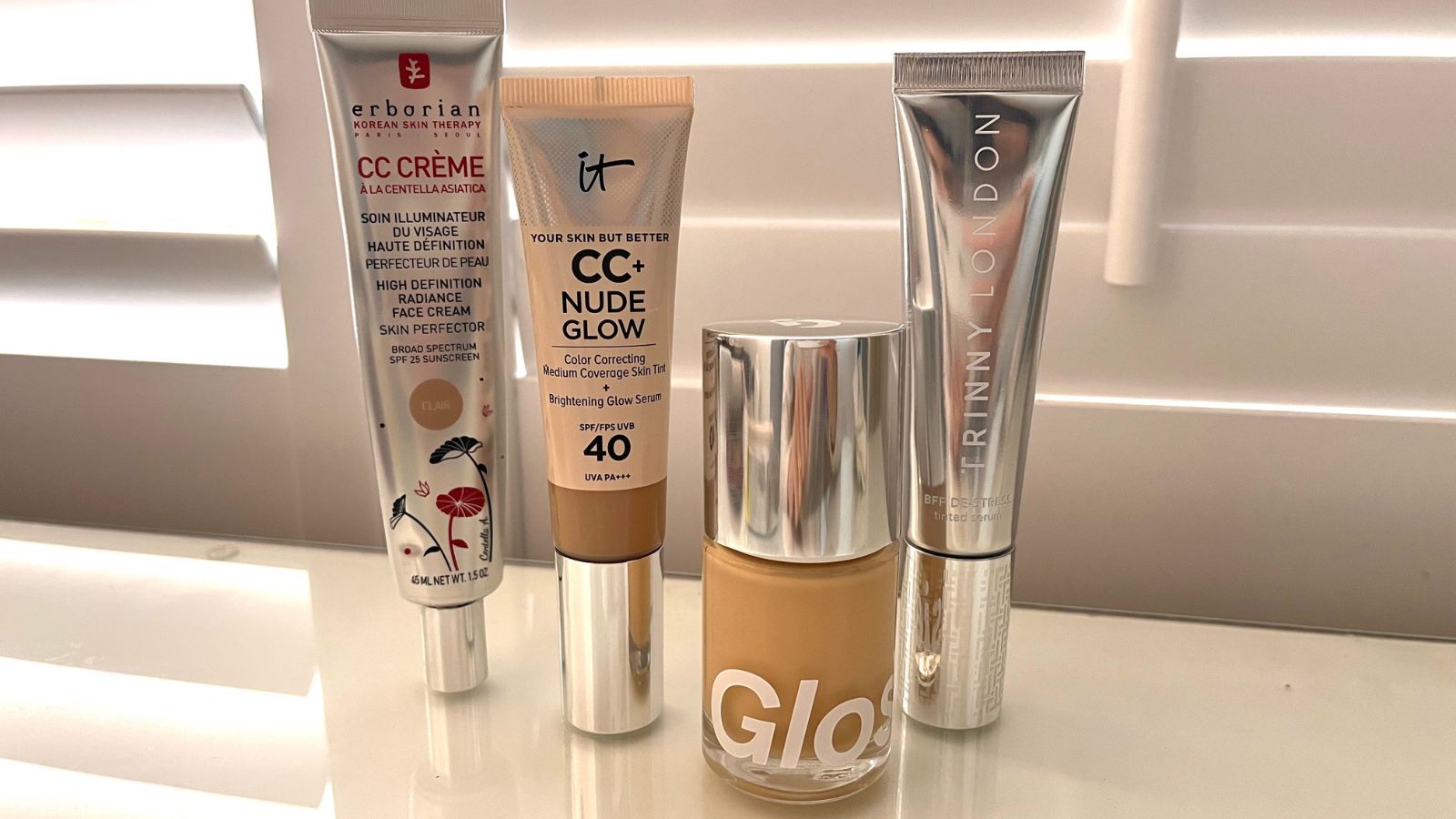
A selection of the foundations we tested for this guide
In order to write this thorough and comprehensive guide to the best lightweight foundations, we tested and compared an array of products from several different price points to ensure our final list included options for various budget levels – the selection included both high street and high-end options. Each one was worn for at least one full day and our evaluations were based on all of the following factors...
- Texture: Most importantly these products had to have a lightweight feel – undetectable and comfortable on the skin.
- Finish: From sheer to soft matte, we assessed how the finish looked both initially and with time.
- Ingredients: Each foundation in this guide has had its ingredient list thoroughly scrutinised, with skincare actives and base liquids assessed (as this will differ hugely between the best serum foundations vs a traditional foundation vs CC cream, for example).
- How it wore through the day: Each product was applied to the face and worn for at least a day, often several, to see how it developed with wear.
- Packaging: Ease of application also extended to the user experience, dispensation and portability.
- Value for money: Finally, we paid close attention how the product performed in line with its price tag. We know that comparing a £60 foundation with one that costs £9.99 isn’t apples for apples, so this context was carefully considered.
How to choose the best lightweight foundation
When shopping for the best lightweight foundation, there are a few things that are worth considering to ensure your base of choice meets your expectations. Our experts expand on these later in the guide, but the quick list to bear in mind covers the following.
- Your skin type and needs
- The key ingredients in the formula and the results they give
- The texture you prefer
- Price point
A good candidate for a lightweight foundation is one that allows your skin to peep through. Those without many concerns, "Can have their pick of lightweight foundations," says pro makeup artist Rose Gallagher. "Those who want glow can look for a skincare base, or for something more skin-like, opt for an oil-free formula." To find the best foundation for oily skin, Gallagher recommends looking for balancing ingredients, such as niacinamide, clay or charcoal.
Sensitive or dry skin types should “Look for formulas that include ceramides, squalane and hyaluronic acid to ease the dryness," she adds. "Soothing ingredients like vitamin B5 and E are a bonus as they nourish and protect the skin."
Aside from this, think about finish and texture. "Lightweight foundations can be quite sheer, and if you want more coverage you might have to use another layer or a little concealer on top," adds Elanna Pecherle, makeup artist and founder of Pearl Beauty.
"Choosing a foundation that is either buildable or pairs well with other liquid products on top is key. There are also lightweight powder foundations that can work better on oily skin types than liquids."
Pecherle continues: "Lightweight foundations will usually have water at the top of the ingredient list, as well as water-soluble actives like hyaluronic acid, peptides and fermented extracts that are highly compatible with the skin. These formulas absorb easily and enhance the skin-like feel.".

Professional makeup artist Rose has grown a huge online following over the years thanks to her easy-to-follow tutorials as well as her honesty and practical advice. Rose is candid about her rosacea, a condition that causes skin to appear red and feel both dry and uncomfortable. This makes her a reliable source for helping you find a lightweight foundation that provides plenty of coverage and doesn't irritate the skin.

With more than a decade of experience in the beauty industry, makeup artist Elanna noticed a need for more minimal product offerings, which inspired her to launch her own brand, called Pearl Beauty. Her chosen look is glowing, natural-looking skin, making her a font of knowledge surrounding lightweight foundations.
Mira Parmar is a London-based professional makeup artist and hair stylist whose work has taken her all over the world. Having worked with several celebrities and on many shoots over the years, she knows what makes a great lightweight foundation – both on and off camera.
What are the common ingredients in a lightweight foundation?
When it comes to the formulas of lightweight foundations, they aren’t packed full of pigment like a typical full-coverage base, which means there is more space for extra ingredients. Not only will these enhance the finish of your foundation but also improve the all-round health of your complexion. The ones to look out for are:
- Antioxidants: Antioxidants, including vitamins C and E, shield skin from free radicals, which are emitted by pollution, UV rays and smoke. Free radicals can damage our healthy cells, accelerating the look of fine lines and hyperpigmentation. Antioxidants do their best work during the day when our skin is most exposed to these kinds of stressors.
- Hyaluronic acid: This is a kind of ingredient called a humectant, which means it works like a magnet to attract water into the skin and hold it there. Small but mighty, a single molecule of hyaluronic acid can hold up to a thousand times its weight in water.
- Glycerin: Like hyaluronic acid, this is also a humectant, which makes it another brilliant ingredient for preventing dehydration so that skin looks plump and dewy rather than dull and tight.
- Aloe vera: A lovely calming ingredient that's great for soothing dry or sensitive skin experiencing a flare-up.
- Ceramides: If you picture the outer layer of our skin like a wall, then ceramides are the mortar that helps to hold the cells together. If that mortar isn’t structurally sound, moisture can escape and things like pollution and bacteria can sneak in. Using ceramides in your skincare and makeup will help prevent this from happening, keeping your complexion soft and healthy.
- SPF: It’s crucial to wear sunscreen year-round, even when it’s gloomy outside. UVA rays, which are responsible for the majority of skin ageing, can penetrate through clouds. We advise using a dedicated sunscreen to ensure your skin is fully protected, but having a little extra in your foundation as a supporting act is never a bad thing.
Which types of foundation are the most natural looking?
"The most natural foundation finishes are soft, lightweight and breathable formulas, giving you just enough coverage," says makeup artist Mira Parmar. "The perfect natural-looking formulas are sheer tints which provide a hint of colour whilst evening out skin tone. Tinted moisturisers are heavier but still lightweight and tend to be dewy and fresh."
Beauty balms and colour correctors are other great options for a natural base. "BB creams also provide skin benefits like blemish control, and CC creams are 2-in-1 makeup and skincare, so work to neutralise and colour correct the skin," Mira continues. "Some light formulations are dewy and radiant and some are matte, so which you choose will depend on your preference."
What's the best way to apply lightweight foundation?
This depends largely on the formula you opt for. Compared to other base products, lightweight foundations also make for a simpler application, Lan Nguyen-Grealis says: “They tend to be quick and easy to apply, often just with your fingers, and don’t require extensive blending or layering – which will save time in your makeup routine.”
As a general starting point, a light and buildable coverage can often work well with a fluffier brush or blended with your fingertips, whilst thicker formulas often benefit from being buffed into the skin to create a flawless finish. If improving your base product's longevity is important, applying one of the best primers with gripping properties beforehand will help to lock your foundation down.
Which is better, cream or liquid foundation?
Those with dry and/or mature skin may benefit from a cream formula, as they are often slightly richer in consistency and more hydrating. Not only do they hydrate dry skin, but they are often more flattering on fine lines. However, if you're after a truly weightless finish, this can be harder to find in a cream formula.
Meanwhile liquid foundations are great for quick application and have more of a lightweight consistency. Ranging anywhere from velvety matte to fresh and glowy in finish, it’s good to have an idea which one you’re looking for before you start shopping. If you want to manage a particular skin concern – such as oiliness – but also want something lightweight and undetectable, liquids tick both boxes.
Which type of foundation is best for a no-makeup-makeup look?
No-makeup looks actually require a fair bit of effort, even if you want the result to look like you barely made any. The right foundation is important here, as you want your skin to still look like skin. “I’d recommend a tinted foundation or a tinted moisturiser as they’re sheer with light coverage, which allows your natural skin to show through without looking cakey,” says Nguyen-Grealis. “These tend to be less matte and more satin or dewy in texture, mimicking the natural look of healthy skin.”
Applying your base with your fingers is fine if you're on the go (or in a hurry in the mornings), but make sure to warm your hands first and press the product into your skin, to maximise its staying powder. However, ideally, you'll opt for a brush with relatively spaced-out bristles to help buff your lightweight foundation or tinted moisturiser into your complexion, resulting in an even finish.
Sign up to our free daily email for the latest royal and entertainment news, interesting opinion, expert advice on styling and beauty trends, and no-nonsense guides to the health and wellness questions you want answered.

As woman&home's Beauty Channel Editor, Fiona Mckim loves to share her 15+ years of industry intel on womanandhome.com and Instagram (@fionamckim if you like hair experiments and cute shih-tzus). After interning at ELLE, Fiona joined woman&home as Assistant Beauty Editor in 2013 under industry legend Jo GB, who taught her to understand ingredients and take a cynical approach to marketing claims. She has since covered every corner of the industry, interviewing dermatologists and celebrities from Davina McCall to Dame Joan Collins, reporting backstage at London Fashion Week and judging the w&h Beauty Awards.
- Amelia YeomansSenior writer
